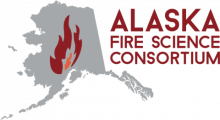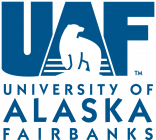Foundations for Improving Resilience in the Energy Sector against Wildfire on Alaskan Lands (FIREWALL)
Navigating the New Arctic (NNA) is one of NSF's 10 Big Ideas. NNA projects address convergence scientific challenges in the rapidly changing Arctic. The Arctic research is needed to inform the economy, security and resilience of the Nation, the larger region and the globe. NNA empowers new research partnerships from local to international scales, diversifies the next generation of Arctic researchers, enhances efforts in formal and informal education, and integrates the co-production of knowledge where appropriate. This award fulfills part of that aim by supporting planning activities with clear potential to develop novel, leading edge research ideas and approaches to address NNA goals. It integrates aspects of the natural environment, built environment, and social systems, and addresses important societal challenges, builds significant educational opportunities, and engages with local communities.
Destructive wildfires in the Arctic, which are projected to grow in increased frequency and magnitude, are driven by multifaceted factors such as environmental change, expanded wildland-human interface, and lack of models to integrate natural, engineering, and social sciences to help coordinate response and recovery decisions. The interaction between the energy network and wildfires is highly interrelated since wildfires are compounded directly and indirectly by inaccurate and imprecise management of the energy network. The situation becomes further complicated in Arctic regions with complex terrain, constant exposure to nature’s forces, and vulnerable infrastructure, leading to economic and social losses. Though a series of workshops, this NNA project enables creative brainstorming, builds synergistic models, and guides multidisciplinary discussions that will generate knowledge on better understanding, navigating, planning, and adapting to evolving Alaska wildfire regimes. Through the lens of energy resilience, the project supports building stronger ties and facilitates a two-way dialogue among researchers, local communities, and stakeholders to provide solutions for emergency preparedness, operational endurance, and enhanced resilience to wildfires.
This NNA planning grant expands scientific understanding of interactions between natural environment, energy infrastructure, and social systems before, during, and following wildfires. It generates knowledge about the interaction of wildfires with energy systems and builds on those insights to develop research directions and roadmaps to deploy advanced energy technologies for structural and operational resilience against wildfires, while considering legal and regulatory requirements and local community needs. The project shapes research directions on the varied wildfire triggers in Alaska, enhances understanding of interactions of Alaskan energy networks and wildfires, and guides strategic plans for wildfire resilience. Further, the project engages local Alaskan communities with an integral and active role in implementing plans against the undesirable social, psychological, and physical outcomes of wildfires. The workshops in this project engender a multidisciplinary team that uses the knowledge and relations gained to develop engineering solutions to social and environmental challenges, strengthen the connections between Arctic and non-Arctic communities, and provide Arctic residents with educational opportunities to train the workforce of the future on Arctic wildfire resilience.
This award reflects NSF's statutory mission and has been deemed worthy of support through evaluation using the Foundation's intellectual merit and broader impacts review criteria.
This collaboration between Heidari Kapourchali (2022705, UAA) and Dehghanian (2022505,GWU) aims to analyze the interactions between wildfires and energy systems in Alaska as it relates to implications for community health, education and energy regulation. Over two years, the researchers would use team meetings and annual workshops in Alaska to develop: 1) knowledge on these relationships, 2) questions for future research, and 3) a team to do that research. No fieldwork will be conducted.
Publications
Lindemann, M., K. DeMichele, M.H. Kapourchali, C. Waigl, and E. Trochim, 2023: Igniting Precision: Amplifying Wildfire Prediction in Diverse Regions via Teacher-Student Model Fusion, 2023 International Conference on Machine Learning and Applications (ICMLA), https://doi.org/10.1109/ICMLA58977.2023.00079
Rostamzadeh, M., M.H. Kapourchali, L. Zhao, and V. Aravinthan, 2023: Outage Management of Power Distribution Systems with Electricity-Dependent Medically-Vulnerable Critical Loads, 2023 IEEE/IAS 59th Industrial and Commercial Power Systems Technical Conference (I&CPS), https://doi.org/10.1109/ICPS57144.2023.10142087
Su, J., P. Dehghanian, B. Vergara and M. H. Kapourchali, 2021: An Energy Management System for Joint Operation of Small-Scale Wind Turbines and Electric Thermal Storage in Isolated Microgrids, 2021 North American Power Symposium (NAPS), College Station, https://doi.org/10.1109/NAPS52732.2021.9654467
Project Outcomes
NSF Award # 2022705
This planning project focused on enhancing energy grid resilience against wildfires in Alaska by bringing together experts from academia, industry, local agencies, state-wide organizations, and other key stakeholders. In particular, the team collaborated to understand (1) how different wildfires can be triggered in Alaska, (2) how bi-directional interactions of the energy network and wildfires can be characterized in Alaska, (3) how strategic plans for resilience (structural hardening and mitigation mechanisms), necessary regulations and policies to structure the modern energy sector in Alaska can be guided and (4) how local communities can play an active role in implementing the plans against wildfires, and how knowledge generated can facilitate information discovery for effective response and recovery actions, should wildfires occur in the future.
Through monthly meetings and brainstorming sessions, the FIREWALL team (1) initiated communications with several stakeholders, electric industry partners, and technology developers, (2) became familiar with the past and existing practices in Alaska when dealing with wildfires, and (3) identified several major gaps, all highlighting the importance of and the need for a synergistic approach in establishing a two-way dialogue among electric utilities and key stakeholders. The FIREWALL workshop in 2021 was organized around the main theme of facilitating this convergence. The workshop was organized around multiple panel discussions and breakout sessions to understand the past and ongoing research on Alaska wildfires, transfer knowledge from other wildfire-vulnerable regions beyond Alaska (with both similar and different fire regimes, landscapes, electricity grid architectures), foster communications between key stakeholders, community liaisons, and research institutes for linking science to practice, and integrate federal perspectives on wildfire resilience into FIREWALL efforts and on how the project can contribute to advancing national goals and priorities. Key takeaways from the 2021 FIREWALL workshop and the follow-up workshops-which focused primarily on remote electricity grid infrastructure- highlighted several needs: accurate high-impedance fault identification, risk layers tailored to Alaska's unique environment and vegetation patterns, and metrics to assess social vulnerabilities in remote communities with sparse populations. Through collaboration with community members and key stakeholders and guided by multidisciplinary discussions during the FIREWALL planning activities, the project team developed a research proposal to tackle the challenges of wildfire resilience in complex terrains and for vulnerable electricity infrastructure.
The FIREWALL planning project provided a fruitful opportunity for multiple junior faculties of different disciplines and graduate students to work with a group of experienced highly skilled experts on the topics around wildfire resilience in the Arctic. It also provided opportunities for the team (including graduate and undergraduate students) to publish and present research findings to a broader community in various venues including NSF NNA Community Office Annual Meetings, IEEE Future Directions, IEEE SusTech workshop, Arctic Encounter Symposium, and Western Alaska Interdisciplinary Science Conference and Forum. The planning grant significantly strengthened the University of Alaska Anchorage's ability to collaborate with various stakeholders in Alaska and partner with other universities. It also positioned the FIREWALL team to contribute valuable knowledge to wildfire resilience research, addressing challenges faced by other states, such as Hawaii, as evidenced by the Maui wildfire.
NSF Award Number # 2022505
In recent years, Alaska has witnessed high-intensity wildfires that are projected to increase in frequency and magnitude. Wildfires propagate long distances from wildlands into developed areas and cause structure loss and fatalities. Wildfire losses continue to grow globally and are driven by a number of factors including climate change, expanded wildland-human interfaces, and suppression policies. The interaction between the energy network and wildfires has proven to be highly interconnected as wildfires are compounded directly and indirectly by imprecise management of the energy network. The situation becomes further complicated in regions with complex terrains, constant exposure to nature's forces, and vulnerable infrastructure.
The principal objective of the FIREWALL planning project was to explore planning activities leading to a convergence research plan, team formation, and capacity building within the Arctic community for resilience against wildfires. The FIREWALL project united experts from academia, industry, as well as local and state-wide agencies and stakeholders. This planning project brainstormed during its performance period seeking research directions to gain a better understanding of the existing challenges, lessons learned, and best practices in fighting against wildfires in the Arctic. In particular, the team collaborated to understand (1) how different wildfires can be triggered in Alaska, (2) how bi-directional interactions of the energy network and wildfires can be characterized in Alaska, (3) how strategic plans for resilience (structural hardening and mitigation mechanisms), necessary regulations and policies to structure the modern energy sector in Alaska can be guided and (4) how local communities can play an active role in implementing the plans against wildfires and how knowledge generated can facilitate information discovery for effective response and recovery actions, should wildfires occur in the future.
Through monthly meetings and brainstorming sessions, the FIREWALL team (1) initiated communications with several stakeholders, electric industry partners, and technology developers, (2) became familiar with the past and existing practices in Alaska when dealing with wildfires, and (3) identified several major gaps, all highlighting the importance of and the need for a synergistic approach in establishing a two-way dialog among electric utilities and key stakeholders. The FIREWALL workshop in 2021 was organized around the main theme of facilitating this convergence. The workshop was organized in multiple panel discussions and breakout sessions to understand the past and ongoing research on Alaska wildfires, transfer knowledge from other wildfire-vulnerable regions beyond Alaska (with both similar and different fire regimes, landscapes, electricity grid architectures), foster communications between key stakeholders, community liaisons, and research institutes for linking science to practice, and integrate federal perspectives on wildfire resilience into FIREWALL efforts and on how the project can contribute to advancing national goals and priorities. With the synergistic models formed and convergent multidisciplinary discussions guided during the FIREWALL planning activities, knowledge was co-generated around better understanding, navigating, planning, and adapting to the increasingly dynamic Alaska vulnerable to wildfires.
The FIREWALL planning project provided a fruitful opportunity for multiple junior faculties of different disciplines to work with a group of experienced highly-skilled experts on the topics around wildfire resilience in the Arctic. It also provided opportunities for the team (including graduate and undergraduate students) to publish and present research findings to a broader community in various venues.











